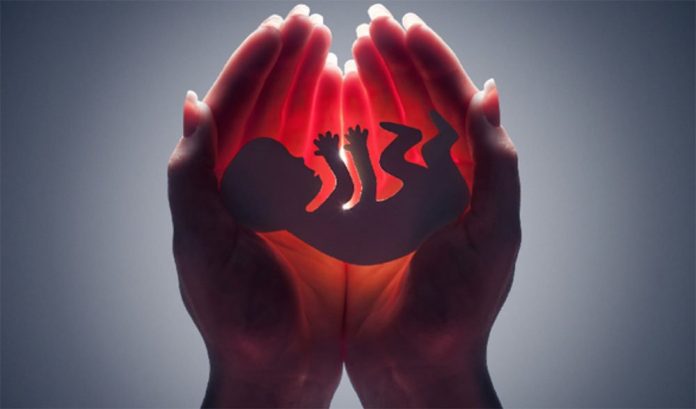This article is written by Udita Prakash, a student at UPES, Dehradun. This article talks about the Medical Termination of Pregnancy, 1971 and the need for an amendment to give a right to the father for the abortion of the child, same like a mother.
Table of Contents
Introduction
Under the law, abortion means the spontaneous or artificially induced expulsion of an embryo or fetus. The abortion law, which was developed in the late 1900s, remained largely unchanged until the 1960s and 1970s. At this time, various situations regarding the safety of mother and child were combined to create a reform movement. Women’s rights groups, doctors, and lawyers had launched an organized abortion reform movement to drive the needed changes. One of the reasons behind this was that many people had witnessed the fatal complications of illegal abortion. Women’s groups had also begun to see abortion reform as an important step towards the goal of gender equality. They argued that women should be able to manage their pregnancies to ensure equality.
In addition, new concerns about the explosive population growth and its environmental impact had raised public awareness for the need for contraception. At that time, countries such as Japan and Russia had developed much more tolerant legislation regarding abortion. In Japan and Eastern Europe, abortion was available on-demand, and in many other Western European countries, abortion was permitted to protect the health of mothers.
Scenario in India
The Indian Penal Code, 1860, which was enacted under English law by the Britishers over a century ago, had abortion provisions. At that time, abortion was a crime that was punishable not only for doctors but also mothers, unless the abortion was necessary to save their lives. This regressive law was repeatedly violated and was one of the main reasons for the premature death of pregnant women due to unsafe abortions. These were the first initiatives taken, but now the laws are liberal and have given certain rights to fathers as well in case of abortion.
The current abortion policy in India is consistent with the protection of reproductive rights as envisaged by the International Conference on Population and Development (ICPD) and other similar international agreements. It does not advocate abortion as a family planning measure. It encourages the promotion of family planning services to prevent unwanted pregnancies while recognizing the importance of providing safe, affordable, accessible, and acceptable abortion services to women who need to terminate an unwanted pregnancy. There is great controversy about the mother’s right to abortion, the fetus’s right to life, and the balancing of the interests of the mother and the fetus. The judicial powers of various jurisdictions have considered these cases with prudence and discretion. A clear hierarchy of rights has been established in which the mother’s right to abortion prevails over the rights of pre-viable fetuses in all circumstances and the rights of viable fetuses as long as the mother’s health, freely interpreted, is in danger. The legal status of the unborn acts as a catalyst in this discourse.
Abortion as a fundamental right
Women have the right to abort without being pressured by the government to bring the pregnancy to maturity, as abortion is their fundamental reproductive right. Abortion should be seen as a fundamental reproductive right that all women should enjoy without being restricted by the government or society. Pregnancy affects the health and economic well-being of women, which implies that they have a fundamental right to determine whether it should be allowed to mature or terminated by abortion. The fetus lacks sufficient qualities to be granted the status of a person, which implies that it does not enjoy the same rights as human beings, who have already been born.
In the cases of Suchita Srivastava & Anr. v. Chandigarh Administration (2009) and Dr. VK Krishnan v. State of Kerala (2010), the Madras High Court has respectively affirmed women’s right to choose in the context of continuing pregnancy. In the Suchita Srivastava case, the Supreme Court had held that the state must guarantee women’s reproductive rights as a component of their rights to personal freedom, dignity, and privacy (Article 21). The same was upheld in the VK Krishnan case.
In the case of Laxmi Mandal v. Deen Dayal Hari Nagar Hospital (2010), the Delhi High Court had ruled that preventable maternal death represents a violation of Article 21 of the Indian Constitution. The High Court required the Delhi NCT to implement service guarantees in the National Rural Health Mission, including safe abortion services, to prevent maternal deaths. This landmark ruling created an obligation for the state to end preventable maternal death, including deaths caused by inadequate access to safe abortion.
The Medical Termination of Pregnancy Act, 1971
In our country, unwanted pregnancy poses a problem and this problem has fatal consequences particularly in the case of unmarried girls due to social pressure. Pregnancy without marriage is considered a strange and shameful phenomenon in our country. In India, the Central Board of Family Planning on August 25, 1964, recommended to the Ministry of Health and Family Welfare that it constitutes a committee to study the need for legislation on abortion. The recommendation was adopted in the second half of 1964, constituting a committee made up of members from various public and private agencies in the country. A committee called the Shantilal Shah Committee was formed. After analyzing a large amount of statistical data available at the time, this Committee issued its report on December 30, 1966. Based on this report, the government passed the Medical Termination of Pregnancy Act, 1971 and liberalized abortion laws in India. The law, consisting of only 8 sections, deals with several aspects, such as the time, place, and circumstances in which a registered doctor can terminate a pregnancy. It legalizes abortion in the event of a contraceptive failure or when the pregnancy negatively affects the physical or mental interruption of the pregnancy. The pregnant woman’s consent is essential unless she is a minor or is insane when the consent of the guardian.
Important case laws related to abortion
Mahima Yadav v. NCT of Delhi and Ors. (2021)
Facts of the case
This case was brought before a single judge of the Delhi High Court in which the duration of the petitioner’s pregnancy exceeded 24 weeks. She maintained that the fetus had a rare condition called ‘warfarin embryopathy’. The medical board, in its report, stated that although it is risky to terminate, the risk is within the allowable limit and therefore pregnancy can be terminated.
Judgment
The court allowed the medical termination of pregnancy beyond 24 weeks in accordance with the provisions of the newly amended law and stated in its order that since the fetus presented health risks due to a rare condition, and even if the child were to be delivered, still many surgeries would be necessary even after birth and they could have a physical abnormality.
Akhila Kurain Akhila Ann Baby v. Union of India (2020)
Facts of the case
In this case, the petitioners were a married couple and wanted to abort the fetus. In their petition, they had stated that the pregnancy lasted for 35 weeks, and the fetus suffered from serious abnormalities in brain development.
Judgment
The court had observed that the petitioners were willing to take the risk, although according to the medical report presented by the medical board, it is indicated that there are possibilities of survival of the baby and simultaneously there are possibilities of excessive bleeding during delivery. Furthermore, the report indicated that the fetus has mental abnormalities, but nowhere in the report is it mentioned that the petitioner could abort the baby. The court then dismissed the request for the abortion of a 35-week fetus.
State of Rajasthan v. S (2020)
Facts of the case
In this case, the petitioner was a 17-year-old rape victim who wanted to abort the fetus, but the gestation period exceeded 20 weeks. Earlier, when the girl approached the POSCO Court, her abortion petition was rejected. She later approached the sole judge of the Rajasthan High court, who also rejected her request citing that the fetus has a fundamental right under Article 21 to remain alive.
Judgment
However, the second judge of the Rajasthan High Court clarified that the right of the victim under Article 21 is greater than the right of the fetus. He overturned the order passed by a single Rajasthan High Court judge and allowed the rape victim to undergo an abortion.
Rights of a father in termination of the pregnancy
When a child is born, it is the contribution of both parents. A woman carries a child in her womb, but a father is the one who takes care of the unborn child and the mother. He is the one who always protects both of them, and is equally responsible for any mishappening of the mother or the unborn child. The Supreme Court of India, in the case of Anil Kumar Malhotra v. Ajay Pisricha (2017), had stated that there is no consent required for the father of the child or husband of the mother for the abortion of the child, as there is no provision mentioned under the Medical Abortion of Pregnancy Act, 1971 regarding the consent of the father for the abortion.
Abortion is a very difficult decision. There should be a regulation giving equal rights to the father to decide whether abortion of the child should be done or not. In many cases, women do not want to bear the child to maintain their body shape or simply not take the child’s responsibility. No significance is given to what the father of the child thinks. Thus, there is a need for the amendment in the MTP Act regarding the father’s consent for the abortion in the pregnancy.
Need for amendment
When discussing the abortion topic, it often revolves around the rights of the woman and the fetus. It is important to note that during family planning decisions involving abortion, the rights of the father must also be considered. The father of a fetus may oppose the mother’s decision to terminate the pregnancy or, on the other hand, may not want to be a father and may oppose the mother’s decision to carry the pregnancy to term. Regardless of the case, it is not uncommon for the rights of the father to be seen as secondary to the rights of the mother and the child. Talking about ‘parental rights’ in India comes as a great surprise, as many people are completely unaware that such a term exists in our social system. However, not with the rampant increase in divorces/separations in India, there is a significant need not only to raise awareness on this ‘not talked about as much’ issue but also to urge the Indian judicial system to break with the old prejudices to grant dictatorial rights to mothers over fathers.
In today’s time, parents play an equally important role in raising children, and their importance can in no way be relegated by marital discord between couples. The onus is on the judiciary to take a fair and impartial approach in passing custody/visitation orders so that parity can be established in what would otherwise be a highly skewed domain.
The importance of a father in the life of a child must be rightly recognized. Keeping the child away from the father is a form of child abuse and the Indian judicial system must take this fact into account when deciding custody/visitation appeals. Courts must not succumb to deceptive pressure created by society and have the best interest of the child in mind when making judgments. They should also empathize with the pain and emotional anguish parents must endure while their children are denied access. A marriage that did not work out should not be a factor in denying the son the love of his father. It is high time that prejudices were broken and parents were given what they deserve; equal parental rights.
Recognition of the father’s right to abortion
In 2011, it was reported that Indonesia, Malawi, Syria, United Arab Emirates, Equatorial Guinea, Kuwait, Maldives, Morocco, South Korea, Saudi Arabia, Japan, Taiwan, and Turkey, all had laws that required that an abortion first be authorized by the woman’s husband. All these mentioned countries gave equal rights to the father and the mother in case of abortion. They believe that it is the decision of both the parents as they are the ones who are going to take care of the child in the future and are responsible for the act done by them. Even if the pregnancy is abnormal, both should consent to the same.
In India, where a man’s consent is not required to undergo an abortion, there have been questions about whether or not the alleged father has the right by law to be notified that abortion is taking place. This issue was addressed in the Supreme Court case Planned Parenthood v. Casey (1992), the case arose out of a challenge to five provisions of the Pennsylvania Abortion Control Act of 1982; among the provisions were requirements for a waiting period, spousal notification, and (for minors) parental consent before undergoing an abortion procedure. In a plurality opinion drafted jointly by Associate Justices Sandra Day O’Connor, Anthony Kennedy, and David Souter, the Supreme Court upheld Roe’s “essential possession,” which was that the Due Process Clause of the Fourteenth Amendment protects the right of women choose to have an abortion before viability, in which the court had stated that an alleged father has no right to be notified of the abortion of the pregnancy of his former sexual partner. Although many women discuss the possibility or decision to abort with their partner or with the alleged father of the child, the law does not require them to do so.
Conclusion
Religiously speaking, abortion is considered a sin. But some religious texts reveal that abortion is allowed only if it risks the life of the mother. But the scenario and thinking with regards to abortion have changed over time. Now in many countries, abortion laws have been changed, making it legal, while still some countries have chosen to keep it illegal.
Thus, in conclusion, I would say it is very important to have an amendment in the Medical Termination of Pregnancy Act, 1971. For childbirth, both mother and father are responsible and thus, for pregnancy termination both consents are required. A child is the future of tomorrow, every child is special and they will eventually surpass the people of today. Hence, for the termination of pregnancy, the step taken should be very thoughtful and with a very good reason. A termination, if done more often then, could affect the health of the mother.
References
- https://www.lawyersclubindia.com/articles/all-about-abortion-in-india-and-beyond-13850.asp
- https://pubmed.ncbi.nlm.nih.gov/22457999/
- https://humandefense.com/abortion-and-fathers-rights-a-silent-evil/
- https://www.findlaw.com/family/paternity/fathers-rights-and-abortion.html
LawSikho has created a telegram group for exchanging legal knowledge, referrals, and various opportunities. You can click on this link and join:
 Serato DJ Crack 2025Serato DJ PRO Crack
Serato DJ Crack 2025Serato DJ PRO Crack











 Allow notifications
Allow notifications


